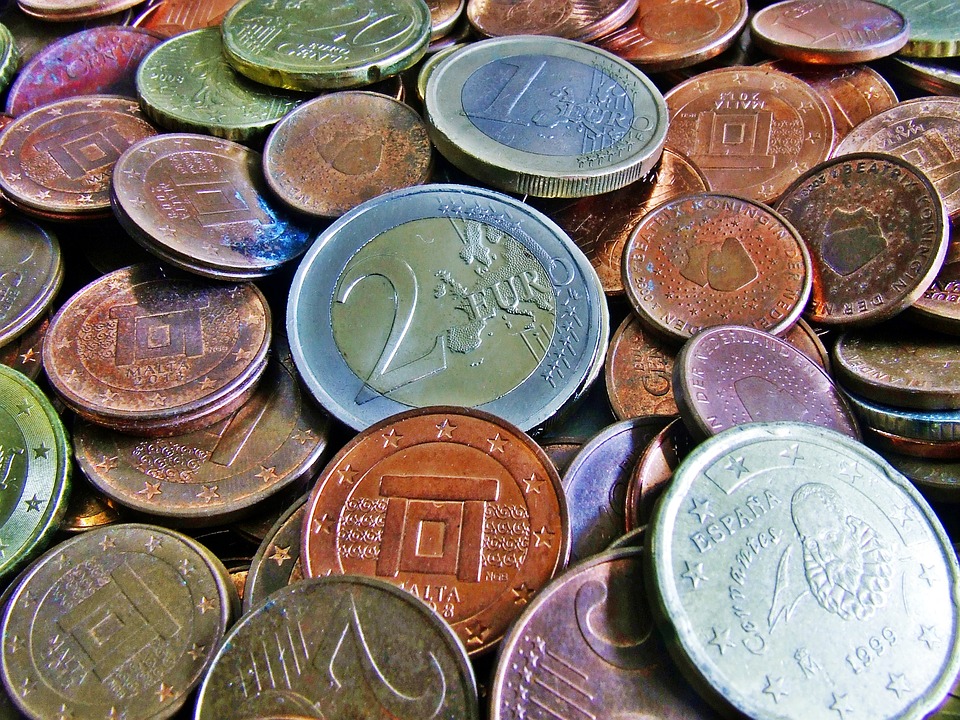Coins in nominations of 1 and 2 eurocents will remain in the past for residents of Ireland. Today, the country's central bank issued a statement in which it announced the start of withdrawal the coins from the monetary circulation.
From October 28, all settlements in cash will be subject to rounding. That is, sellers of shops will round off the amount of the purchase to the nearest 5 cents. For example, if there is a receipt for € 16,13, the will be given as if the purchase amounted to € 16,15. Note that this practice will only affect the final accounts, and the value of individual commodities will continue to be determined to the nearest cent. It does not affect the current reform and payments by check or money transfer cards.
Ireland became the seventh in the list of members of the Eurozone, who refused to issue coins of 1 and 2 eurocents. Earlier, Belgium, Denmark, Finland, Hungary, the Netherlands and Sweden resorted to similar measures. One of the reasons for the refusal of the small coins - unsuitability of their issue. For example, according to the Central Bank of Ireland, the coinage of a 1 eurocents coin costs the state € 1,65, and 2 eurocent is worth € 1,94. According to estimates of the issuer, in all the years the government spent on the issue of both coins around € 30 million.
- The reaction has been fantastic to rounding, - said the representative of the Central Bank Ronnie O`Toole. - We adopted the euro as well as the majority of other countries, and all indications are that both consumers and sellers have rounded bills to their liking.
However, not everyone in Europe agrees. As, for example, from a survey recently conducted by the German newspaper Westdeutsche Zeitung, some respondents were against the abolition of fines, indicating the reasons such as possible problems in those EU countries where small coins are still turning, and the possible increase in prices. By the way, the Irish authorities have not explained what to do with the nickelback that the Irish people are bound to get in the other countries of the Eurozone.
source: centralbank.ie
From October 28, all settlements in cash will be subject to rounding. That is, sellers of shops will round off the amount of the purchase to the nearest 5 cents. For example, if there is a receipt for € 16,13, the will be given as if the purchase amounted to € 16,15. Note that this practice will only affect the final accounts, and the value of individual commodities will continue to be determined to the nearest cent. It does not affect the current reform and payments by check or money transfer cards.
Ireland became the seventh in the list of members of the Eurozone, who refused to issue coins of 1 and 2 eurocents. Earlier, Belgium, Denmark, Finland, Hungary, the Netherlands and Sweden resorted to similar measures. One of the reasons for the refusal of the small coins - unsuitability of their issue. For example, according to the Central Bank of Ireland, the coinage of a 1 eurocents coin costs the state € 1,65, and 2 eurocent is worth € 1,94. According to estimates of the issuer, in all the years the government spent on the issue of both coins around € 30 million.
- The reaction has been fantastic to rounding, - said the representative of the Central Bank Ronnie O`Toole. - We adopted the euro as well as the majority of other countries, and all indications are that both consumers and sellers have rounded bills to their liking.
However, not everyone in Europe agrees. As, for example, from a survey recently conducted by the German newspaper Westdeutsche Zeitung, some respondents were against the abolition of fines, indicating the reasons such as possible problems in those EU countries where small coins are still turning, and the possible increase in prices. By the way, the Irish authorities have not explained what to do with the nickelback that the Irish people are bound to get in the other countries of the Eurozone.
source: centralbank.ie






